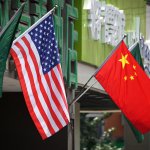
- The TTC had pledged last year that they intend to deepen transatlantic cooperation to strengthen chip supply chains, curb China’s non-market trade practices, and above all, form a more unified approach to regulating tech giants.
- Both Washington and Brussels aim to encourage chip investment by doing “so in a coordinated fashion and don’t simply encourage a subsidy race”.
The widespread global chip shortage as a result of the pandemic in late 2020 has triggered multiple governments around the world to reassess their positions across the semiconductor supply chain. There have been a flurry of policies, investments and subsidies rolled out within many borders to better buffer them from future disruption. While the United States and the European Union were no different in most of their attempts, the US-EU Trade and Technology Council (TTC) has decided to avert from the “subsidy race” hereon.
During their recent ministerial meeting on Monday, the US and EU TTC announced some key outcomes including the need to set up an early warning system to better predict and address potential semiconductor supply chain disruptions as well as a “Transatlantic approach” to semiconductor investment aimed at ensuring security of supply and avoiding subsidy races.
Simply put, both the US and EU want to encourage chip investment, and that means to do so in a coordinated fashion, without encouraging a subsidy race. The bloc’s Commissioner for Internal Market Thierry Breton also noted that the “Transatlantic collaboration on supply chains and digital technologies is crucial to defend our common interests and values.”
“Having successfully worked with the US on supply chain bottlenecks for vaccine ingredients, I am pleased to see a joint ambition to strengthen supply chain resilience in other areas, from raw materials to semiconductors. The Paris summit is an important moment for the TTC to transform the transatlantic dialogue into concrete results,” he added.
YOU MIGHT LIKE

Why China opposes the US’ FABS and CHIPS act?
Going back to reshoring, the Biden administration is seeking to offer US$52 billion for the industry through the CHIPS (Creating Helpful Incentives for the Production of Semiconductors) for America Act. However, 16 months later, despite a sense of urgency among political leaders in Washington, the funding of the US CHIPS Act remains on the drafting table.
The EU, on the other hand, took only five months to draft its counterpart, the EU Chips Act, which is now going through the legislative process and, in many respects, already applies.
Although the EU Chips Act and US CHIPS Act have very similar goals, the detail and means of implementation for these initiatives vary significantly. Hence why lawmakers from both sides join forces to rebalance and create a more resilient chips supply chain.
Overall, the EU and US also announce joint measures on fighting disinformation and hacking, especially from Russia, including a guide on cybersecurity best practices for small- and medium-sized companies and a task force on trusted technology suppliers.









